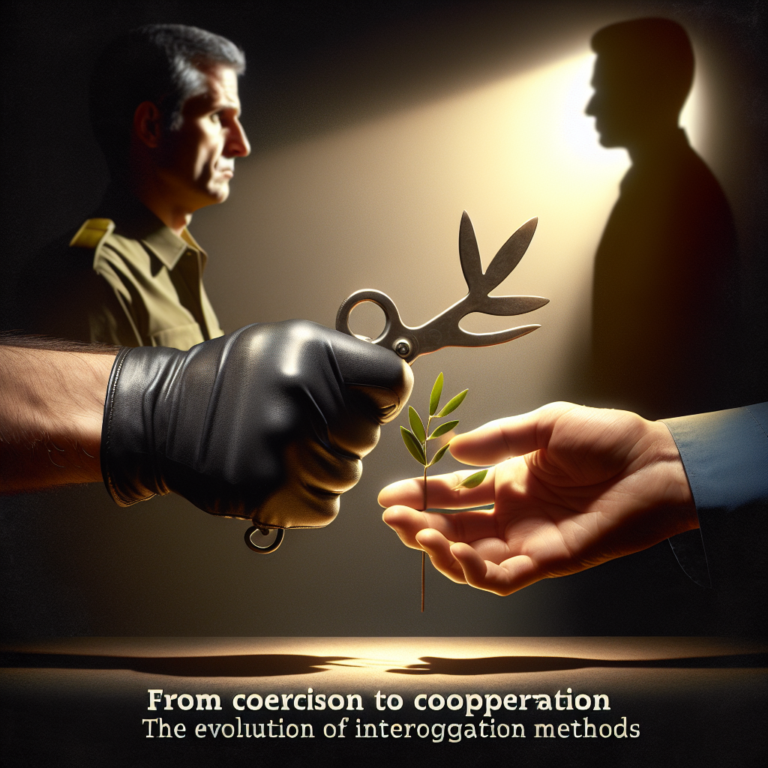
Introduction
In the realm of criminal justice, the notion of a confession carries immense weight. It is often viewed as the ultimate proof of guilt, frequently leading to convictions that can seal the fate of the accused. Yet, the question remains: Is confession enough? The answer appears increasingly complex, especially when examining cases where innocent individuals have been wrongfully convicted based on unreliable or coerced confessions. As the need for justice evolves, so too must our interrogation practices. This article explores the need for improved interrogation practices to protect the innocent, leveraging compelling case studies to examine the profound implications of this issue.
The Overreliance on Confessions
In many jurisdictions, police interrogations are designed with the intent to extract confessions. Misguided by the belief that a confession equates to guilt, law enforcement often rushes to judgment. Numerous studies suggest that this overreliance on confessions has detrimental effects on the integrity of the legal system.
The Psychology of False Confessions
False confessions are a startling reality in our criminal justice system. Psychological manipulation, fatigue, and fear can lead an innocent person to admit to crimes they didn’t commit. Is confession enough? Most certainly not, when confessions can stem from duress or psychological coercion.
Case Study: The Central Park Five
The infamous case of the Central Park Five serves as a powerful illustration of this issue. In 1989, five teenagers were wrongfully convicted of a crime they did not commit, primarily based on coerced confessions extracted under intense police pressure. Years later, DNA evidence exonerated them, revealing the horrifying consequences of relying solely on confessions during interrogations.
Importance of Proper Interrogation Techniques
To address the potential for wrongful convictions, it is crucial that interrogation practices be re-evaluated and modernized. The goal should be the pursuit of the truth, not merely a confession.
Ethical Implications of Interrogation Practices
The ethical considerations surrounding interrogation practices cannot be overlooked. How do we balance the need to solve crimes with the necessity of protecting innocent lives?
The Role of Ethics in Interrogation
Ethical interrogation strategies emphasize respect for human dignity and the psychological state of the individual. Techniques such as building rapport, employing non-confrontational approaches, and allowing for breaks can aid in gathering truthful information without resorting to coercion.
Case Study: The Reid Technique
The Reid Technique, a widely used method in criminal interrogations, has faced criticism for techniques that could lead to false confessions. Critics argue for a balance, urging investigators to use methods that minimize the risk of false confessions. Adopting alternatives like the PEACE Model (Preparation and Planning, Engage and Explain, Account, Closure, and Evaluate) may prove beneficial.
The Role of Technology
In the digital age, technology can play a pivotal role in improving interrogation practices. Recording interrogations can serve dual purposes: providing transparency and preserving evidence of the methods used during questioning.
Legal Framework and Its Limitations
The legal framework governing interrogations, including Miranda rights, is intended to protect individuals from coercions. However, these precautions are not foolproof.
Current Legal Protections
While individuals have the right to remain silent and the right to an attorney, these protections are not always effectively enforced. The nuances in how they are communicated can give way to misunderstandings, putting innocent individuals at risk.
Recommendations for Legislative Reform
There exists an urgent need for reform in legislation regarding interrogation practices. Mandatory recording of all interrogations, improved training for law enforcement on ethical interrogation practices, and stringent penalties for coercive methods could pave the way for justice.
Case Study Analysis: The Importance of Reform
The Wrongful Conviction of Brendan Dassey
Brendan Dassey’s case offers critical insights into the importance of proper interrogation techniques. His confession, obtained during a prolonged interrogation with minimal legal guidance, led to a conviction despite questionable evidence. Public outcry following the Netflix series "Making a Murderer" underscored the pitfalls of overreliance on confessions.
The Impact on Innocence Projects
Organizations such as the Innocence Project have been pivotal in revealing wrongful convictions rooted in false confessions. By systematically analyzing cases, they advocate for improved practices and represent the unjustly accused in their fight for freedom.
Public Perception and Awareness
Educating the public about the complexities of confessions and interrogations is paramount in preventing wrongful convictions.
Media Influence
Media coverage often sensationalizes confessions, framing them as simple admissions of guilt. This portrayal can distort public perception, making it all the more crucial to foster awareness around the potential for coercion and false admissions.
Conclusion: Moving Forward
As we navigate the complexities of criminal justice, the need for improved interrogation practices to protect the innocent becomes starkly clear. Ensuring that confessions aren’t the sole basis for conviction is essential in upholding the principles of truth and justice.
Call to Action
Policymakers, law enforcement, legal professionals, and citizens must rally for substantial reforms in interrogation practices. The ethos should be straightforward: protect the innocent while effectively investigating crimes. Together, we can transform the interrogation landscape and enhance the integrity of our justice system.
FAQs
1. What are false confessions?
False confessions occur when an innocent person admits to committing a crime they did not commit, often due to coercion or psychological pressure during interrogation.
2. Why are wrongful convictions so prevalent?
Wrongful convictions can stem from a variety of factors, including overreliance on confessions, inadequate legal representation, and mishandling of evidence.
3. What are the most effective interrogation techniques?
Effective interrogation techniques focus on building rapport, using non-confrontational questioning methods, and ensuring fairness. The PEACE Model is a recommended approach.
4. How can technology improve interrogation practices?
Recording interrogations allows for transparency and accountability, ensuring that the methods used during questioning are clear and documented.
5. What reforms are necessary for interrogation practices?
Reforms should include mandatory recording of all interrogations, improved training for law enforcement, and penalties for coercive methods to ensure the protection of innocent individuals.
In summary, is confession enough? The stakes are far too high to rely exclusively on confessions; the need for improved interrogation practices to protect the innocent is not just a goal—but an imperative for a just society.












